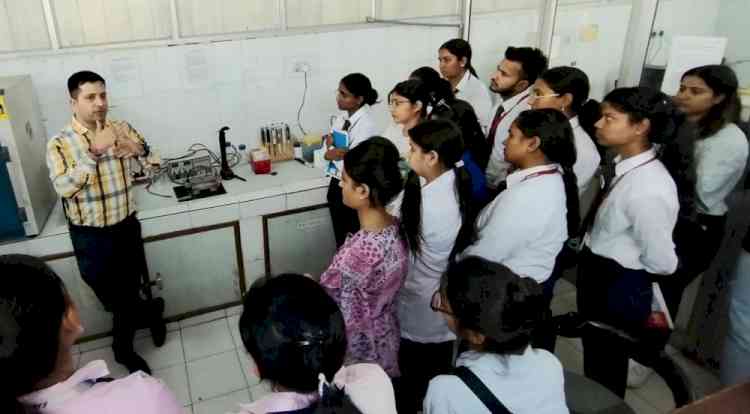Max Hospital advises girl students on infertility risk factors in young women
Author(s): City Air NewsDr Seema Sharma, Senior Consultant, Obstetrics & Gynaecology at Max Super Speciality Hospital, Mohali addressing girl students during a health talk on ‘Risk factors for infertility in young women’ held at PG Government...


Dr Seema Sharma, Senior Consultant, Obstetrics & Gynaecology at Max Super Speciality Hospital, Mohali addressing girl students during a health talk on ‘Risk factors for infertility in young women’ held at PG Government College for Girls, Sector 42, Chandigarh on Thursday.
Chandigarh, August 28, 2014: Over 150 students attended a Max Super Speciality Hospital (MSSH), Mohali health talk on ‘Risk factors for infertility in young women’ at PG Government College for Girls, Sector 42 today. Addressing students, Dr Seema Sharma, Senior Consultant, Obstetrics & Gynaecology at MSSH, Mohali apprised the students about the factors that might put young women at higher risk of infertility. She said that with increasing age, the quality and quantity of a woman's eggs would begin to decline. In the mid 30s, the rate of follicle loss accelerated, resulting in fewer and poorer quality eggs, making conception more challenging and increasing the risk of miscarriage.
Talking about lifestyle factors and smoking ill facts, Dr Seema said that besides damaging the cervix and fallopian tubes, smoking increases risk of miscarriage and ectopic pregnancy. Smoking also aged the ovaries and depletes the eggs prematurely, reducing one’s ability to get pregnant. So one should stop smoking before beginning fertility treatment, remarked Dr Seema.
She said further, keeping weight in control and avoiding alcohol could go a long way in reducing the risk factors for infertility. If you were overweight or significantly underweight, it might hinder normal ovulation. Getting to a healthy body mass index (BMI) has been shown to increase the frequency of ovulation and likelihood of pregnancy. Heavy drinking was associated with an increased risk of ovulation disorders and endometriosis.”
Talking about how sexual transmitted infections such as chlamydia and gonorrhea could cause fallopian tube damage, Dr Seema reiterated that having unprotected intercourse with multiple partners increased chances of contracting a sexually transmitted disease (STD) that might cause fertility problems later. It was best to abstain from unprotected sex, she asserted.

 cityairnews
cityairnews 
















